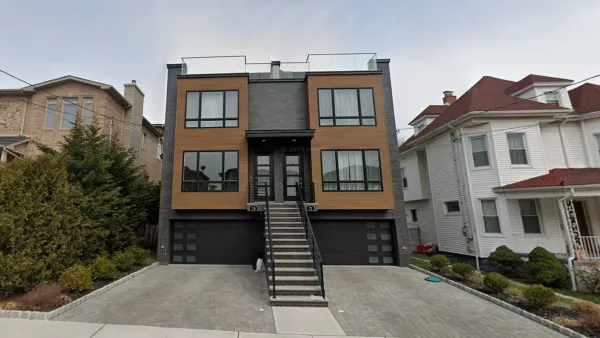Of the thousands of historic homes across the country, many are seeing steep declines in visitors, reports J. Freedom du Lac. Consolidation and new technologies, such as smartphone apps, may be the best alternatives to closing doors.
Many house museums in history-rich states such as Virginia are grappling with dwindling attendance numbers, and though this trend can be traced back to the mid-seventies, more recent “[e]conomic forces are partly to blame” reports Freedom du Lac. House museums, normally reliant on admission and shop revenues, donations, or government funding to operate, are cutting salaries and hours, and/or hosting corporate and other special events to stay afloat, writes Freedom du Lac. Some fear many of these estates, especially lesser known ones, may have to “close their doors for good”, “which is a shame,” says Sarah Scarbrough, director of Virginia’s Executive Mansion, explaining that these “cultural assets help people understand the heritage of their communities and the country, providing context, stories and rich detail about people, places and periods.”
“Blame historical illiteracy or apathy at your own peril,” warns Freedom du lac, “attendance at many of the Smithsonian Institution’s museums has been up again, and a film about Abraham Lincoln is among the year’s top-25-grossing movies.” Preservationists and historians understand that not all historic homes can be “rockstars” like Thomas Jefferson's Monticello or George Washington's Mount Vernon Estate, which welcome millions of visitors a year and have seen growth in attendance. To stay afloat, less well-known estates like Stratford Hall, Gen. Robert E. Lee’s birthplace, and Montpellier, Jame Madison’s expansive estate, are turning to technology and developing smartphones apps to better engage the shifting tastes of visitors.
“The world is changing,” says Doug Smith, executive director of Montpelier’s Center for the Constitution. “If you want to play in a modern, relevant space, then you have to think differently and present differently. We want to tell the best story we can to as many people as we can.”
FULL STORY: Struggling to attract visitors, historic houses may face day of reckoning

Planetizen Federal Action Tracker
A weekly monitor of how Trump’s orders and actions are impacting planners and planning in America.

Maui's Vacation Rental Debate Turns Ugly
Verbal attacks, misinformation campaigns and fistfights plague a high-stakes debate to convert thousands of vacation rentals into long-term housing.

Restaurant Patios Were a Pandemic Win — Why Were They so Hard to Keep?
Social distancing requirements and changes in travel patterns prompted cities to pilot new uses for street and sidewalk space. Then it got complicated.

In California Battle of Housing vs. Environment, Housing Just Won
A new state law significantly limits the power of CEQA, an environmental review law that served as a powerful tool for blocking new development.

Boulder Eliminates Parking Minimums Citywide
Officials estimate the cost of building a single underground parking space at up to $100,000.

Orange County, Florida Adopts Largest US “Sprawl Repair” Code
The ‘Orange Code’ seeks to rectify decades of sprawl-inducing, car-oriented development.
Urban Design for Planners 1: Software Tools
This six-course series explores essential urban design concepts using open source software and equips planners with the tools they need to participate fully in the urban design process.
Planning for Universal Design
Learn the tools for implementing Universal Design in planning regulations.
Heyer Gruel & Associates PA
JM Goldson LLC
Custer County Colorado
City of Camden Redevelopment Agency
City of Astoria
Transportation Research & Education Center (TREC) at Portland State University
Jefferson Parish Government
Camden Redevelopment Agency
City of Claremont





























